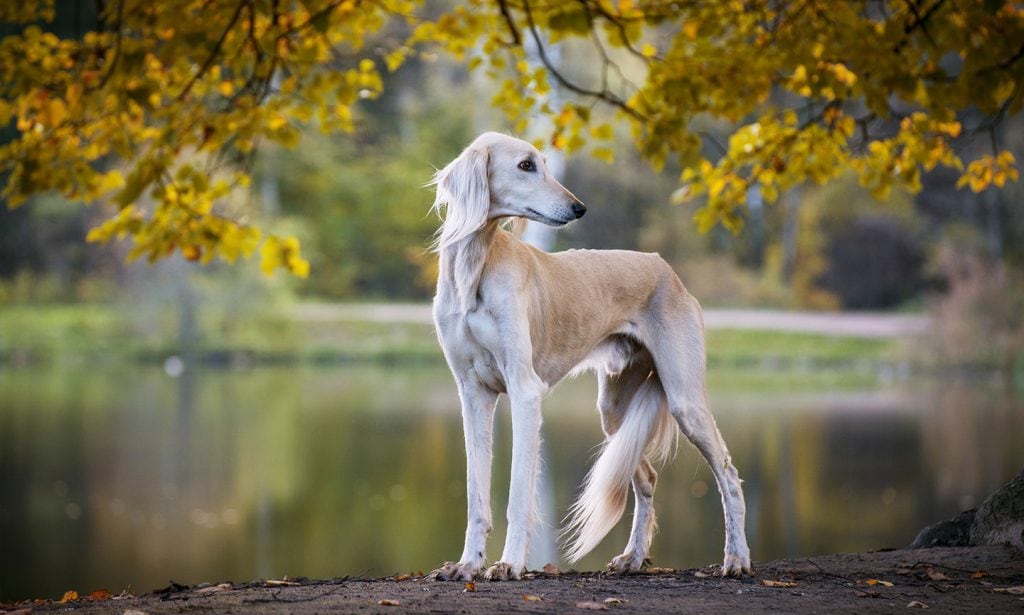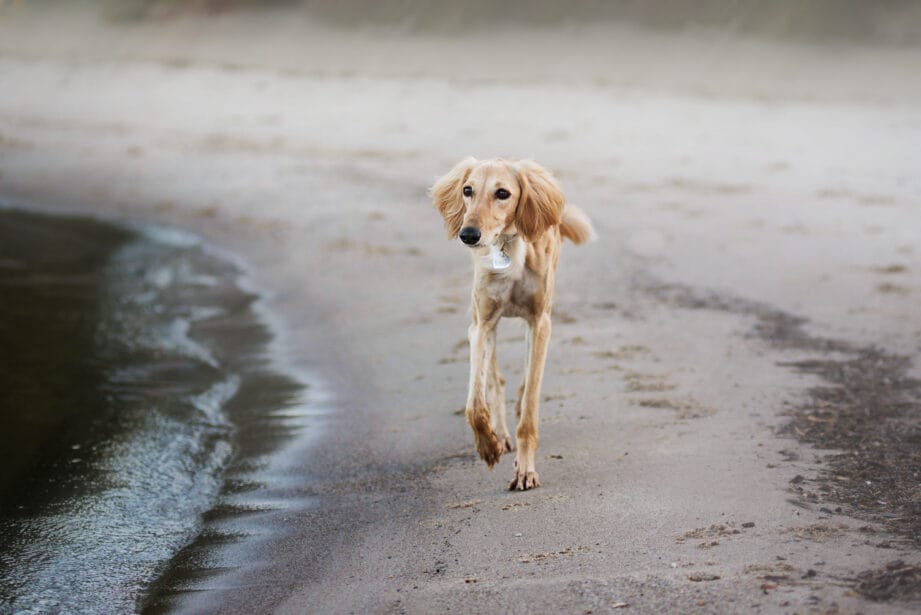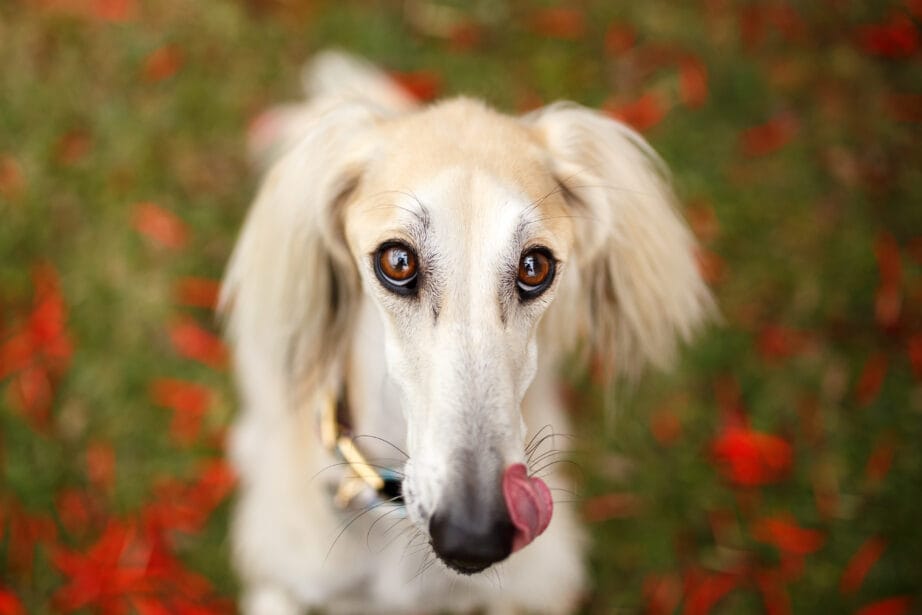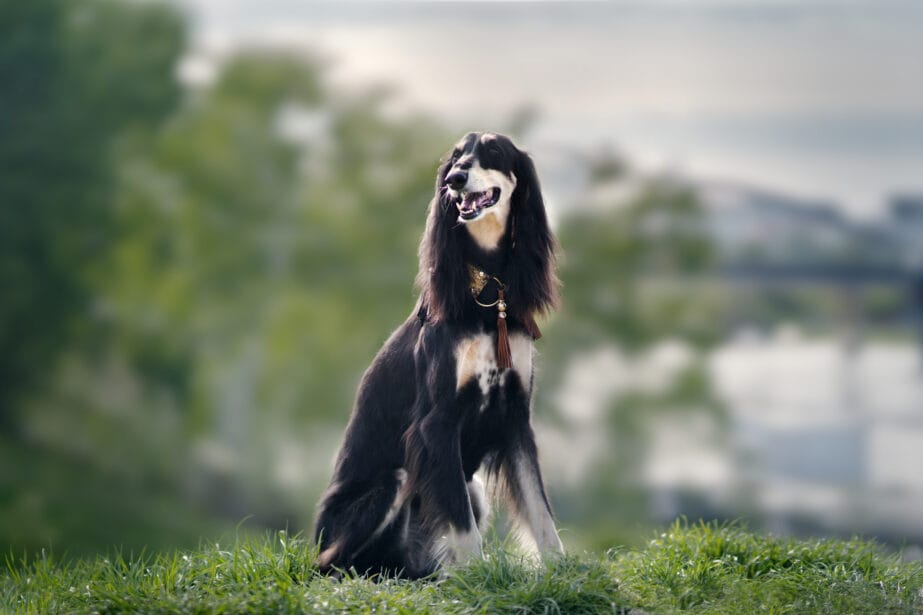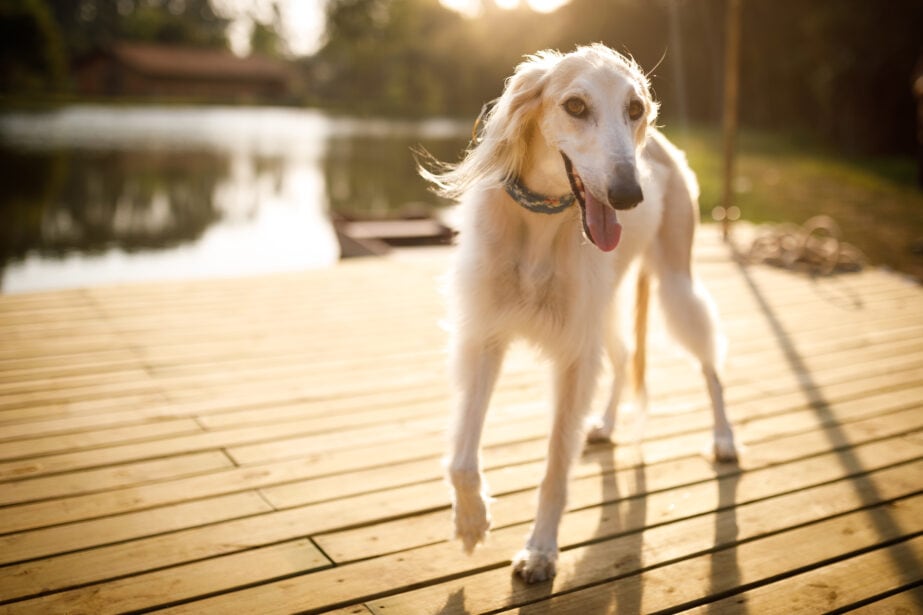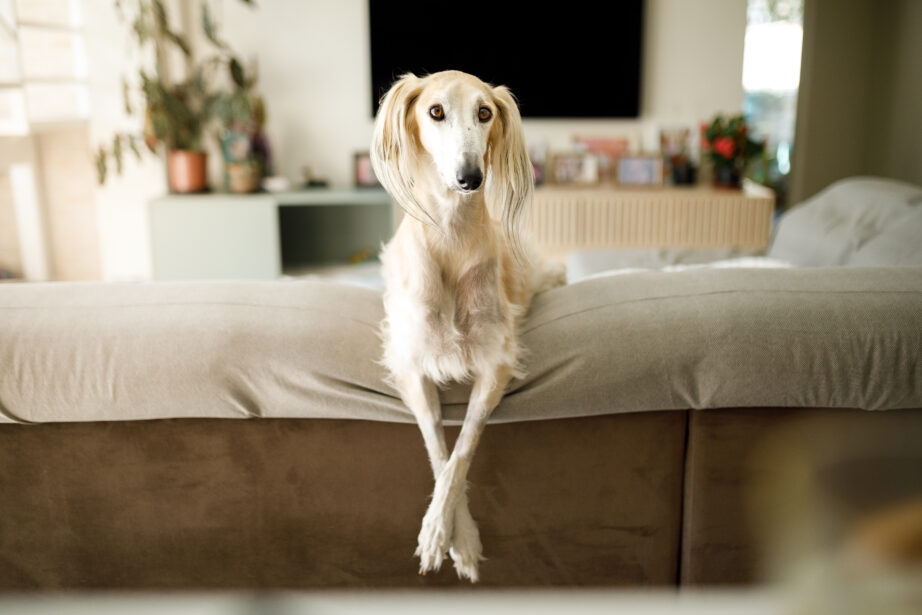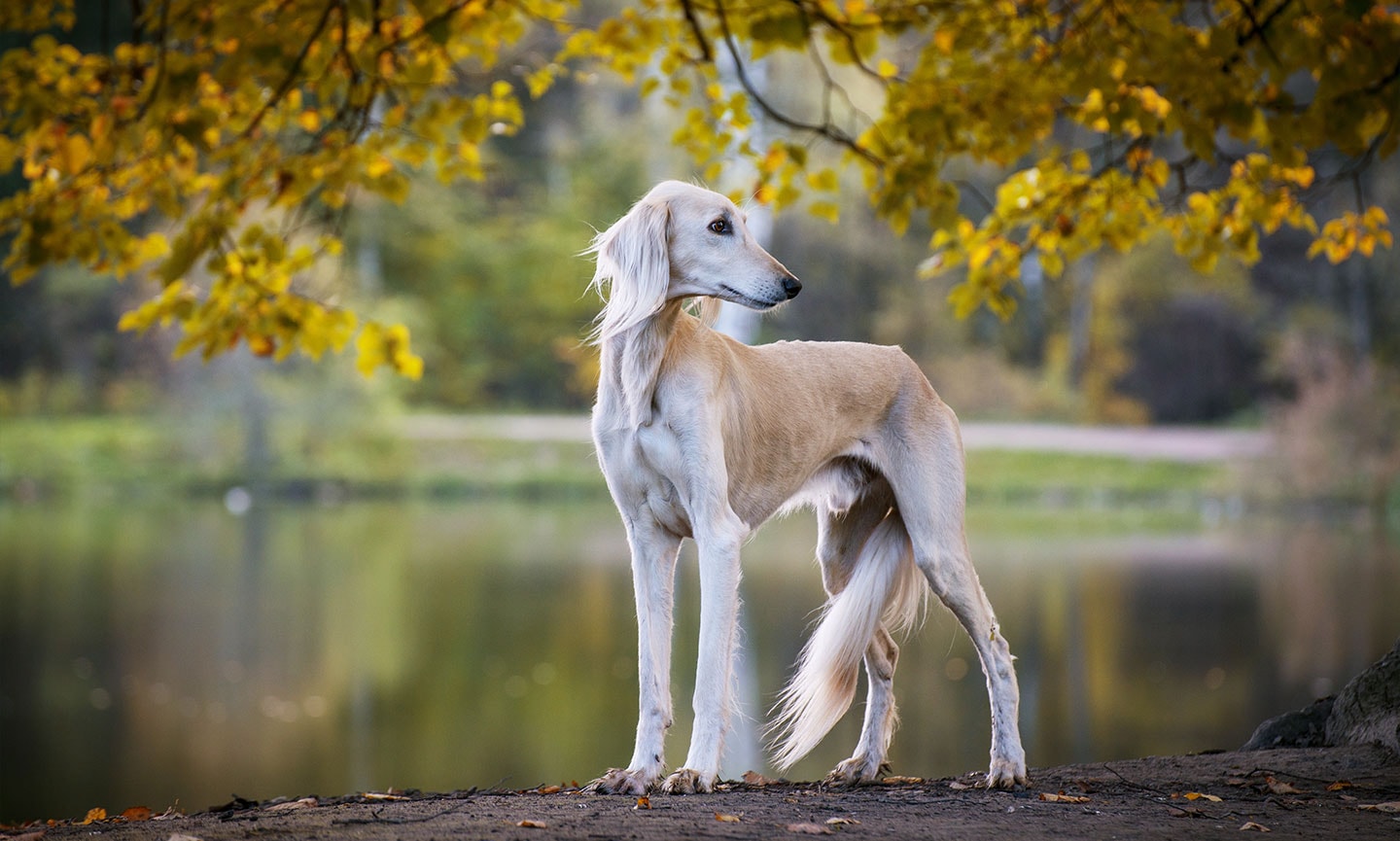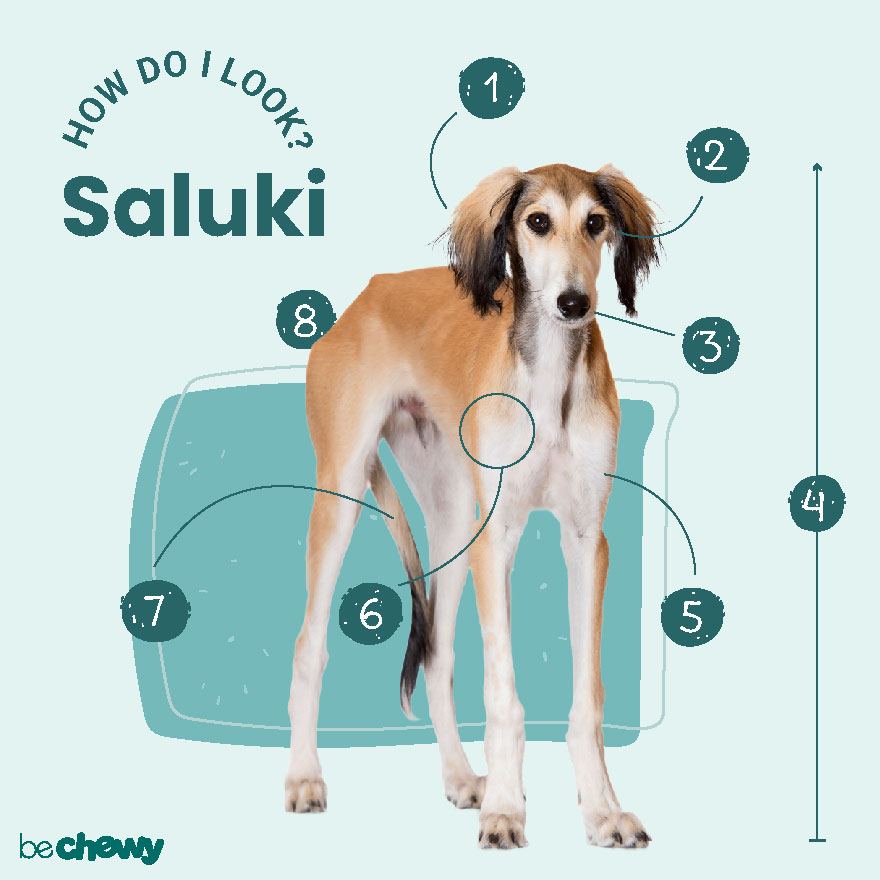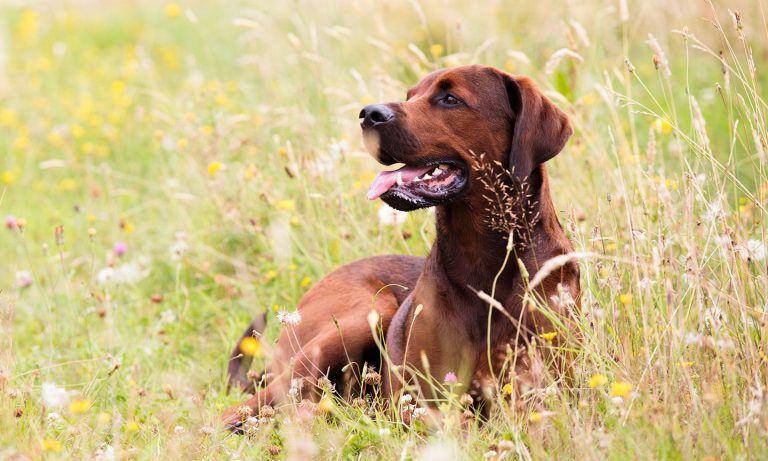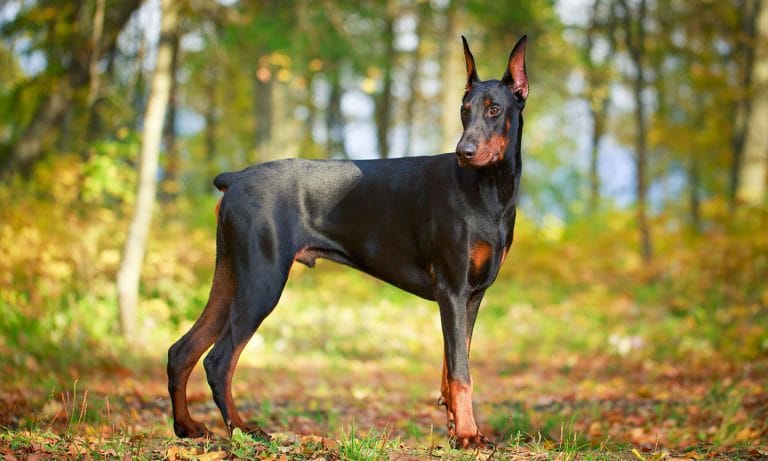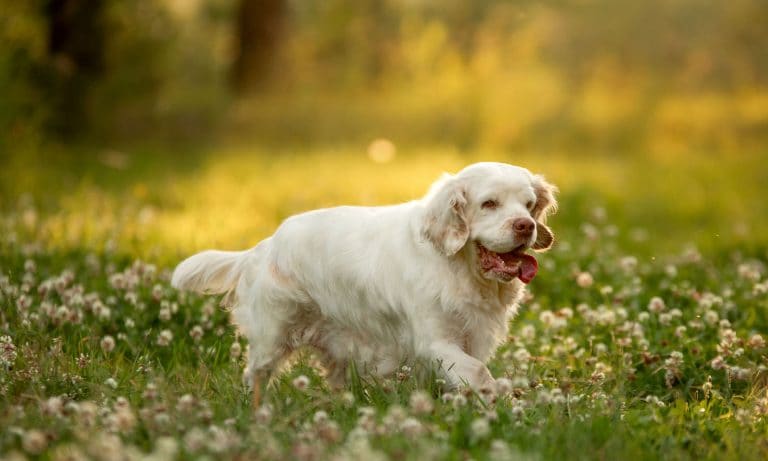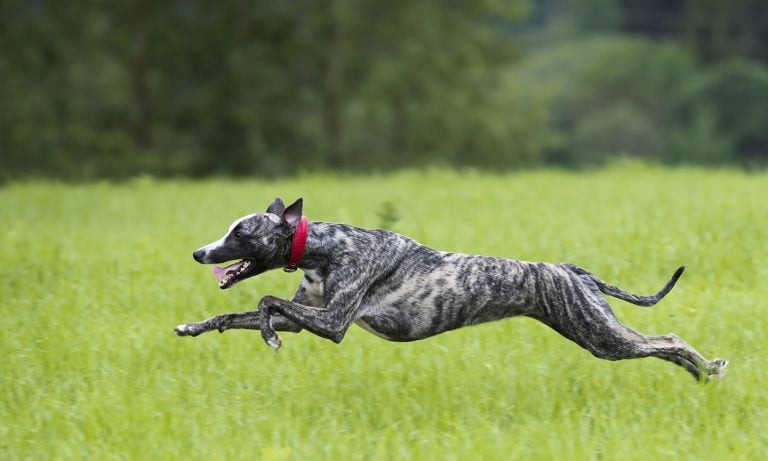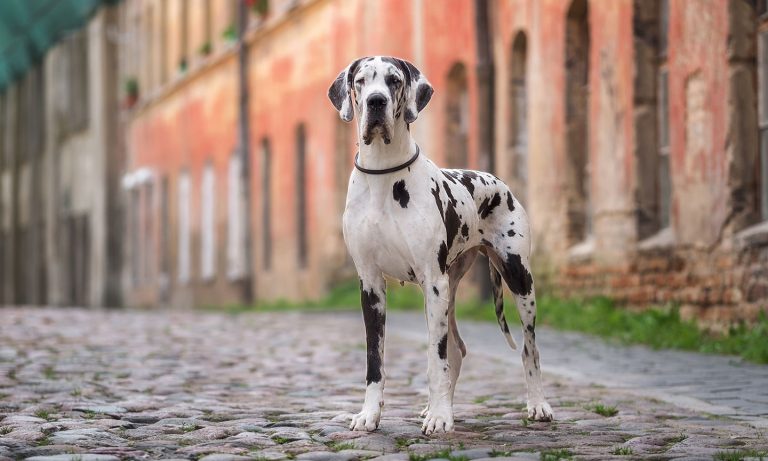With their sleek physique, the Saluki might look like they belong on the red carpet—but don’t let their delicate features deceive you. These dogs are Olympians at heart; they can zoom at speeds up to 40 mph and jump a four-foot fence with finesse. But that doesn’t mean you have to be an Olympic sprinter, too. They’re happy for you just to watch with amazement from the sidelines. These graceful canines aren’t all-race-no-snuggles, either. After a day of run-play-rinse-repeat, these gentle dogs are content to chill with you for a Netflix marathon. How perfect is that?
Breed Snapshot
Temperament:
ComposedGentleEmotionally IntelligentCoat Color:
Black And TanBlack Tan And WhiteCreamFawnGoldenRedSilverWhiteChocolateChocolate And TanBlackBlack And Silver
Best For
Salukis are elegant and independent pups who can reach lightning-fast speeds. They need ample exercise, and thrive in quiet homes with experienced pet parents who understand their sensitive nature and can provide space to run.
Saluki Temperament
The Saluki temperament is typically quiet and reserved. As such, this breed doesn’t tend to be super talkative; it’s rare to come across a Saluki who’s a big barker. They play well with other dogs, but they may be shy until they get to know a familiar face. While they’re watchful animals who may alert you when something’s amiss at home, they’re a bit too delicate to be an effective guard dog. Despite high levels of intelligence, Salukis are also not typically employed as service or therapy dogs.
Salukis are usually gentle with children, but they may be sensitive to over-stimulation or excessive attention from very young or excitable kids. They aren’t likely to bite, but they’re also just not into being smothered with physical affection or in situations with handsy or rambunctious little ones. Lassie, the Saluki is not, so ensure any children in your dog’s life have been taught how to respectfully interact with them.
Another defining characteristic can be their standoffishness with strangers, even though they often become quite fond of those in the household. In fact, they tend to bond with one family member in particular. (Beware, you jealous types!) They can suffer from separation anxiety if this person leaves home for extended periods, so the ideal pet parent will be able to commit to consistent face-time in this relationship.
The loyal and companionable Saluki can make a wonderful family dog. That said, they’re not a fit for families with other small animals due to their strong prey drive and chase instincts, which are common in sighthounds. (If you’ve got a bunny or guinea pig who runs loose at home, a Saluki is not going to be a friendly roommate.) These traits also mean that Salukis need to be kept on a leash at all times unless they’re in a safe, enclosed space. Got a flimsy fence? That’s not gonna cut it with this breed. You’ll want one that’s at least six feet in height.
How to Care for a Saluki
Salukis have a taste for luxury, as their royal ancestry might suggest. They can be fussy eaters, so they need a high-quality diet. Despite their good looks and Farrah Fawcett hair, they actually don’t need a ton of grooming, but they do need a good bit of exercise and training, which takes some perseverance on your part. Their highest maintenance need may actually be their bedding. They prefer it on the softer, more luxurious side, thank you. Your own bed’s high-thread-count sheets will do quite nicely.
Saluki Health
Saluki life expectancy is usually between 10 and 17 years, and they’re considered an overall robust breed. That said, there are a few health issues that affect the Saluki breed more frequently than some other dog breeds.
- Dilated Cardiomyopathy (DCM): In this cardiac disease, the heart becomes enlarged, resulting in a weakened ability to pump. This can lead to congestive heart failure. Treatment is typically daily medications.
- Gastric Dilatation-Volvulus (GDV): Like other dog breeds with deep chests, Salukis may experience GDV (aka bloat), which causes the dog’s stomach to fill with gas and become twisted. It can occur suddenly and is a life-threatening emergency. To help reduce the chance of your dog experiencing GDV, use a slow feeding bowl at mealtime, keep the bowl on the ground (don’t elevate it) and avoid exercising at least an hour before or after mealtime. If you think your pup is suffering from GDV, get to your vet immediately.
- Hip Dysplasia: This genetic orthopedic condition occurs due to malformation of the hip ball and socket joint, resulting in laxity and rubbing. Symptoms can include limping, pain and arthritis that are typically treated with joint supplements, pain medication or surgery depending on the severity.
- Neuronal Ceroid Lipofuscinosis: This storage disease can result in blindness, disorientation and seizures. There is no cure, but genetic screening testing is available.
- Cancer: Saluki dogs are prone to several types of cancer including lymphoma, hemangiosarcoma, osteosarcoma, and mammary cancer. Treatment will depend on the specific condition and can include surgery, chemotherapy, radiation therapy and palliative care.
Saluki History
If the Saluki’s majestic mug somehow just screams “descendant of royalty” to you, you’re onto something—the Saluki dog breed was once a favorite among rulers, like Alexander the Great. For centuries, these noble animals graced the palaces of royal families of the Middle East and sat throne-side among pharaohs.
Archeologists have found ancient artifacts, including sculptures and paintings, that depict slender dogs with feathered, Saluki-like features. Possible Saluki mummies have also been found in tombs. These discoveries give experts reason to think that the Saluki may be one of the oldest domestic dog breeds in the world.
Also known as Persian Greyhounds or Gazelle Hounds, these dogs were originally bred in the Middle East as sighthounds for hunting. (Sighthounds are dogs who hunt by sight instead of by following their nose, as a Beagle would.) In more recent years, the Saluki has become famous for their running and racing abilities.
The American Kennel Club (AKC) recognized the Saluki as an official breed in 1927. Saluki puppy prices range from $400 to $1,000, and the cost goes up from there. But for that price, you’re likely getting a pup who’s been screened for health and temperament issues and may come with pedigree papers. You can find a list of reputable breeders on the AKC website. If you’d like to adopt, reach out to Saluki rescue organizations or keep an eye out for the breed at your local animal shelter. Search Chewy’s database of adoptable dogs in your area.
FAQs
Do Salukis shed?
Yes, Salukis shed—but they shed very little, so they’re perfect for families who don’t want to battle pet hair on a daily basis. That said, they are not a hypoallergenic breed and may not be a good choice for people who suffer from allergies.
Do Salukis bark a lot?
Salukis don’t bark a lot and are considered a relatively quiet dog breed.
Are Salukis good family dogs?
Salukis are good family dogs but raising a Saluki with kids in the household can be a balancing act: You’ll need to teach your little ones to be calm and gentle with this naturally reserved animal. That said, Salukis can be a great fit for families with older kids or senior family members.
Are Salukis faster than Greyhounds?
Whether Salukis are faster than Greyhounds may be the million-dollar question of the dog world. Maybe… But, either way, the answer is somewhat up for debate. Greyhounds are considered slightly faster sprinters. Their top speed is 45 mph vs. a Saluki’s top speed of 40 mph, but Salukis may outperform them on distances longer than a half mile.
Where are Saluki dogs from?
Salukis come from somewhere in the Middle East, Asia or Egypt, and the breed’s origin dates back thousands of years.
What are the most common Saluki mixes?
The most common Saluki dog mixes are:
- Saluki-Greyhound mix (Saluki Greyhound)
- Saluki-Whippet mix (Saluki Whippet)
- Saluki-German Shepherd mix (Saluki Shepherd)
- Saluki-Golden Retriever mix (Saluki Golden Retriever)
- Saluki-Husky mix (Saluki Husky)
Note: These are not purebred dogs but mixed breeds.

Top Takeaways
Demure and dignified, the Saluki breed is one of the most ancient types of domesticated dogs around today. These calm and quiet, often shy, animals need daily bouts of exercise, and they’ll be happiest in a serene and stable home with a fenced-in yard. Though they’re absolute stunners sure to turn heads on the street, their grooming needs are surprisingly minimal. Saluki training, however, is a bit trickier: Positive reinforcement techniques must be started early and should emphasize socialization. The investment is well worth it, though!
Expert input provided by veterinarian Dr. Cori Wigfall, DVM, BVM and veterinary spokesperson of SpiritDog Training, as well as certified dog trainer Kate LaSala, CTC, CBCC-KA, PCBC-A, CSAT, owner of Rescued By Training.
Breed characteristic ratings provided by veterinarian Dr. Sarah J. Wooten, DVM, CVJ, a veterinarian at Sheep Draw Veterinary Hospital in Greeley, Colorado; dog trainer and behavior consultant Irith Bloom, CPDT-KSA, CBCC-KA, CDBC, owner of The Sophisticated Dog, LLC, in Los Angeles; and certified animal behavior consultant Amy Shojai, CABC, in Sherman, Texas.
The health content was medically reviewed by Chewy vets.

Search for Adoptable Salukis Near You
Female Names
- Sadie
- Keya
- Isabella
- Lily
- Hannah
- Willow
- Kayden
- Kaza
- Piper
- Anuket
Male Names
- Dadash
- Ace
- Ian
- Delta
- Thor
- Pickle
- Ramzi
- Jove
- Naim
- Hellebread
Share:
